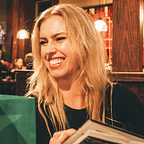The International Year of Indigenous Languages Social Media Campaign
On Monday, January 28th, our world’s first International Year dedicated to Indigenous Languages was launched from the United Nations Educational, Scientific, and Cultural Organization (UNESCO) Headquarters in Paris, France. Every year the United Nations (UN) declares a theme for an international year; therefore, all of 2019 is dedicated to increasing understanding, awareness, integration, collaboration, and cooperation in all areas related to Indigenous languages, whether that be digitally, culturally, pedagogically, or politically.
This global initiative is commemorated throughout the year under the slogan “indigenous languages matter for sustainable development, peace building, and reconciliation”.
Last autumn, Wikitongues asked UNESCO to help ensure that the ideas put forward throughout this year are sustainable into the longterm. We began discussing the international year and the high amounts of attention it was generating at the top-levels — all exciting steps forward for Indigenous communities around the world — yet, we were left wondering, where does this leave us when 2020 arrives? How can we ensure that we are positioned, at the end of this year, to sustain that excitement? How can we work together to utilize the internet to reach a larger population?
The answer to these questions appeared to lie in the form of a social media coalition. Wikitongues organized a group of civil society partners from around the world; during the course of this year, these partners will be testing out different social media platforms and experimenting with campaigns to discover what works best for their communities, to share ideas with each other, and to create replicable models for others around the world to put into practice, if they would like to do so.
Learn more about our #IYIL2019 partners:
Polyglot Indonesia: a millennial-run organization based in Indonesia that focuses on supporting Indonesians to use their platform as a base to practice their language skills. They host a plethora of language-oriented events in Indonesia. Here’s a collection of languages we’ve recorded that are used in Indonesia.
Afûk: Afûk is based in Leeuwarden, Netherlands and promotes the use of Frisian in daily life. They have created many successful social media campaigns, encouraging people to #PraatMarFrysk. Watch our video of West Frisian.
Indigenous Television: Nepal’s first Indigenous community television. It’s a 24-hour channel, providing informative programs “on the issues of Indigenous communities in their own languages”. They recently wrote an article on the launch of the #IYIL2019. Learn more about languages of Nepal on our YouTube.
DeafHaven: A non-profit based in Nairobi, Kenya, supporting creative process development for the Kenyan Deaf community. Having an organization supporting an Indigenous sign language was important to us, as we must remember that this year is not only supportive of spoken languages, but also of sign languages. You can watch Jarvis signing Kenyan Sign Language on our channel.
First Languages Australia: this organization works with Aboriginal language communities and Torres Strait Islander language communities to support these communities in having full command of their languages and being able to use them as much as they wish to. They have a hashtag, #languagelegend, sharing videos of Indigenous languages of Australia.
Rising Voices: Rising Voices is a project of Global Voices and works to connect online media activists around the world. Join in on their annual Mother Language Meme Challenge, starting in just a couple of weeks!
Whose Knowledge: an organization working to reimagine and reconstruct the internet, so that we build and defend an internet of, for, and by all. They’re working daily on #DecolonizingTheInternet.
Mokuola Honua: a center based in Hilo Bay, Hawaii, which provides spaces in bringing the Indigenous World together to seek life and healing for — and through — indigenous languages.
O Foundation (OFDN): OFDN advocates for democratizing the knowledge economy by placing itself in the cusp of language, community, and the open web. Their main project, #DigitizeHeritage, is working to digitally-document lesser-known languages and upload them on Wikimedia Commons.
This coalition’s diversity and geographical scale will ensure the success of #IYIL2019 by building bridges between UNESCO and the communities UNESCO strives to represent. That way, we can help guarantee UNESCO’s approach and rhetoric are beneficial for all.
If you’d like to donate to support the work of Wikitongues or if you’d like to get to know our work, please visit wikitongues.org. To watch our oral histories, subscribe to our YouTube channel or visit wikitongues.org to submit a video.
